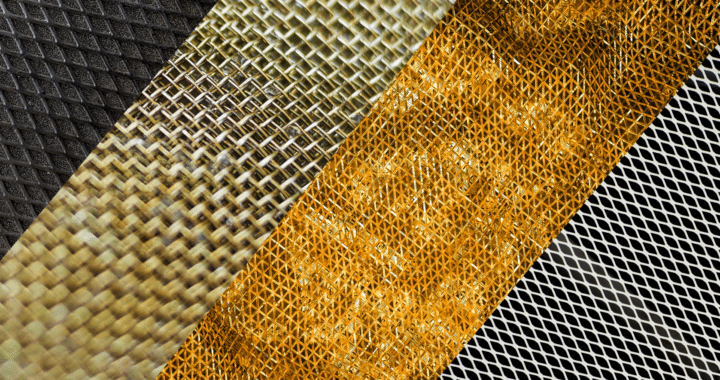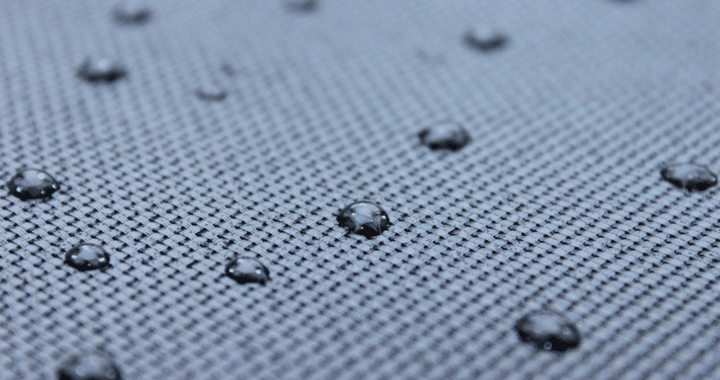There is no debate that wire mesh is one of the most versatile materials out there. Its flexibility and durability make it the ultimate choice for a variety of jobs across different industries. In simple terms, wire mesh—also known as wire cloth or wire fabric—is a fabric-like material manufactured by weaving or welding thin strands of metal together in varying grid-like patterns. Wire mesh can be made in different alloys, all offering their own unique benefits and characteristics. Some of the most common wire mesh alloys include aluminum, stainless steel, brass, copper, and bronze. In this article, we will discuss the different types of alloys you can choose from and the benefits that come with each.
Aluminum Wire Mesh
Aluminum is a wire mesh alloy often chosen due to its low weight and relatively affordable cost. Compared to stainless steel, aluminum is almost a third of the weight with the same specifications. Aluminum is used in many lightweight screening applications, like air vents and personal audio headsets.
Additionally, aluminum wire mesh boasts a strong resistance to corrosion. Aluminum works well in highly corrosive environments like freezing temperatures, heavy rainstorms, and aggressive winds. Despite its high corrosion resistance, aluminum wire mesh still offers affordability for a lot of applications. Depending on your needs, aluminum can be the cheapest material to use for your project. You can always contact a Lawrence Sintered Metals professional to get a quote on the project you are planning.
Stainless Steel Wire Mesh
Stainless steel is another wire mesh alloy that is a popular choice for many metal mesh uses. All stainless steel is graded. The grade of stainless steel refers to its quality, durability, and temperature resistance. When it comes to stainless steel, Type 304 and Type 316 are two of the most common types used. Both of these grades can withstand a high degree of corrosion.
In terms of applications, Type 304 stainless steel is ideal for the food and beverage industry, while Type 316 is beneficial for the chemical and pharmaceutical industries. Additionally, Type 304 stainless steel is commonly used in buildings, decor, and site furnishings. There are many wire mesh alloys that are preferred for decor, each with their own unique properties.
Decorative Wire Mesh Alloys
Wire mesh alloys can be used on the worksite but they also offer distinct architectural and decorative benefits to homes and businesses. Some of the most common wire mesh alloys used for decorative applications include brass, copper, and bronze. All three of these alloys are strong materials with distinct colors that can match materials already used in the house. For instance, if you already use copper or bronze for lighting fixtures, you can use wire mesh material in the same alloy to create wall art or cabinet screens to tie the whole look together.
Brass Wire Mesh
Brass wire mesh is just one of the many decorative alloys to use in applications. Brass wire mesh is a soft and malleable material comprised of copper and zinc. Known as “270 yellow brass”, the most common brass wire mesh is composed of approximately 65% copper, 35% zinc. “260 high brass” is another common brass wire screen composed of 70% copper and 30% zinc, used particularly for custom-manufactured items.
The zinc found in brass wire mesh adds resistance and higher tensile strength, hardening the mesh. Compared to copper mesh, brass alloy offers more strength.
Copper Wire Mesh
Copper wire mesh is another optimal choice for decorative applications. Copper’s striking color makes it the perfect choice for fireplace screens in the home, insect screens, and creative architectural wire mesh projects. Copper also bodes well in outdoor decor, as its color will change when exposed to the outdoor elements. Copper wire may not be as strong as steel but it is more flexible. Lawrence Sintered Metals offers commercially pure copper wire mesh that is over 99% pure copper. This copper is resistant to corrosion and excellent for electric and thermal conductivity.
In addition to decorative purposes, copper wire mesh is used in RFI shielding and Faraday cages. Copper wire mesh can be used to shield entire rooms or buildings from electromagnetic interference or radio-frequency interference.
Bronze Wire Mesh
The last decorative wire mesh alloy we’ll discuss in this article is bronze wire mesh. Bronze wire mesh is created with a 90% copper and 10% zinc blend. Compared to brass alloy, bronze offers higher corrosion resistance and higher strength. Additionally, bronze wire mesh is stronger than copper wire and also weathers to a different color in weather conditions.
Bronze wire mesh is oftentimes used in applications ranging from heat pipe wicks and stirling engines to decorative cabinets and garden use. Due to its corrosion resistance, bronze wire mesh screen is used in insect screens offering protection for windows.
Lawrence Sintered Metals Offers All the Wire Mesh Alloys You Need
Finding the right product when it comes to wire mesh, can start with finding the right wire mesh alloy. The application and environment are two important factors to take into account when looking for the right alloy. If you’re not sure where to start, the trusted professionals at Lawrence Sintered Metals can guide you to the right wire mesh alloy to fit your needs.
If you’re in the market for wire mesh with a specific alloy for your next project, contact us today! We’re happy to help you find what you need and offer solutions to your next wire mesh project.




